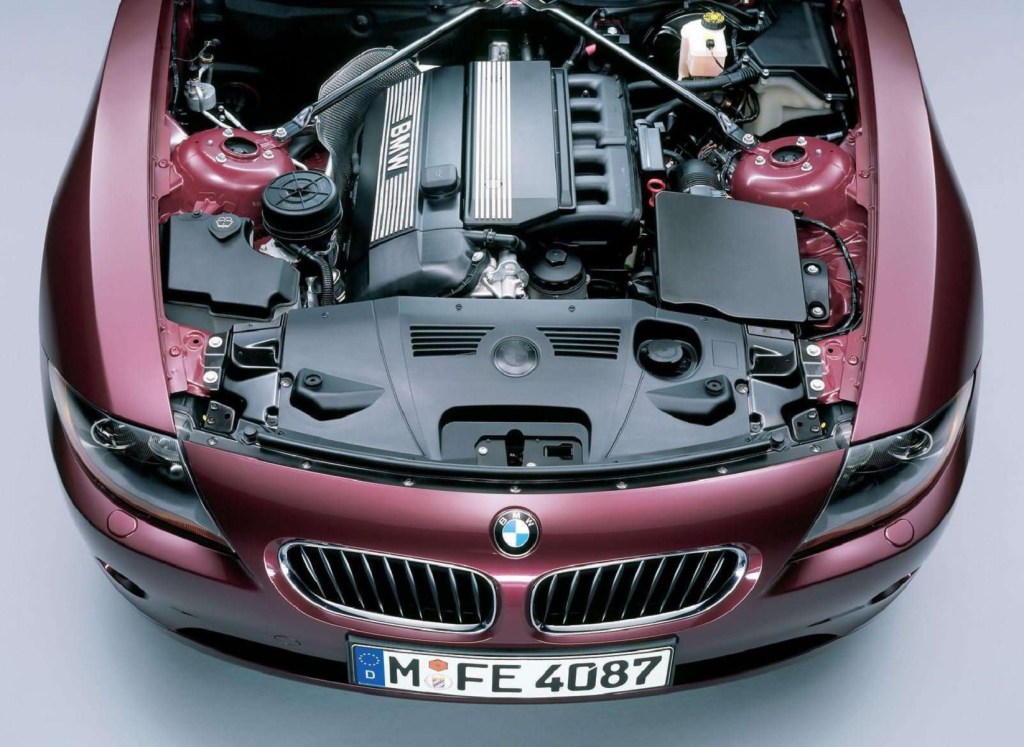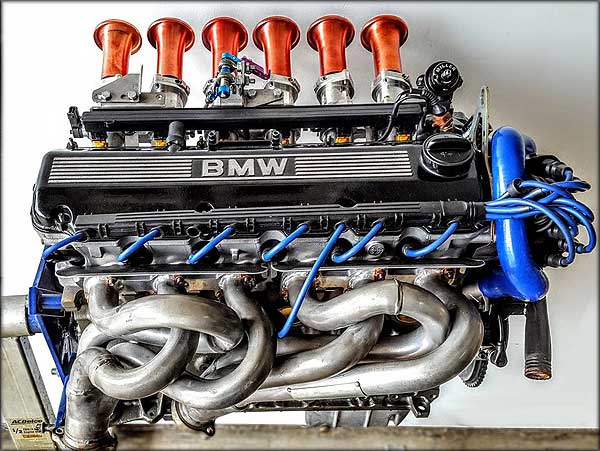The Advancement of the BMW Engine: A Recall at Iconic Models
The Advancement of the BMW Engine: A Recall at Iconic Models
Blog Article
Unveiling the Intricacies of Next-Generation Power Units: a Deep Study Advanced Engine Innovations and designs
In the world of vehicle design, the relentless search of sustainability, efficiency, and efficiency has pushed the development of power units to unmatched heights. As we stand on the precipice of a brand-new age in transportation, the ins and outs of next-generation engine styles beckon us to explore the sophisticated modern technologies and innovations that assure to redefine the driving experience. From innovative materials that push the borders of durability and weight reduction to sophisticated turbocharging and turbo charging systems that raise power output to brand-new levels, each component of these power devices holds a crucial to unlocking the future of auto engineering. Delving deeper right into the realms of exhaust control, intelligent engine monitoring systems, and the horizon of power unit advancement, we locate ourselves on the cusp of a makeover that guarantees to reshape the landscape of mobility as we recognize it.
Development of Engine Products

The shift in the direction of advanced engine materials has also allowed engineers to develop engines with greater power outcomes while maintaining fuel performance standards. The use of lightweight materials decreases the general weight of the engine, leading to boosted gas economic situation and reduced exhausts. In addition, advancements in materials technology have allowed for far better thermal monitoring within engines, resulting in increased integrity and long life.
Turbocharging and Supercharging Technologies
Just How do Turbocharging and Supercharging Technologies change engine efficiency and performance in modern vehicles? Turbocharging and turbo charging are modern technologies that substantially enhance engine efficiency by boosting the amount of air intake into the burning chamber. Turbocharging attains this by using a turbine driven by exhaust gases to pressurize the consumption air, while supercharging utilizes a belt- or chain-driven compressor to achieve the very same impact.
These modern technologies allow smaller sized, extra fuel-efficient engines to create power equivalent to bigger ones, called downsizing. Forcibly even more air into the cylinders, turbocharging and supercharging boost combustion efficiency, causing raised horsepower and torque output without a considerable rise in engine size. This brings about much better velocity, towing capability, and overall driving performance.
In addition, turbo charging and turbocharging add to boosted fuel effectiveness by permitting the use of smaller sized engines that eat less fuel under regular driving conditions - bmw engine. This mix of enhanced performance and effectiveness has actually made turbocharging and turbo charging important parts of lots of modern-day engine layouts
Discharge Control and Environmental Effect
With raising global issues relating to air top quality and environmental sustainability, the application of exhaust control technologies in cars plays a critical role in decreasing unsafe toxins launched right into the ambience. Modern vehicles are furnished with innovative exhaust control pop over here systems that aid decrease the ecological influence of automotive operations. Catalytic converters, for circumstances, are made to transform poisonous gases such as carbon monoxide gas, nitrogen oxides, and hydrocarbons into less dangerous materials like co2 and water vapor.
Moreover, improvements in engine innovation, such as the integration of exhaust gas recirculation systems and discerning catalytic decrease, have substantially added to lowering exhausts. These modern technologies function in tandem to enhance combustion efficiency and decrease the launch of harmful pollutants right into the air. Furthermore, the development of crossbreed and electrical automobiles represents an important step in the direction of lowering the general ecological impact of the transportation sector.
Intelligent Engine Monitoring Solution

In addition, these systems make it possible for lorries to fulfill rigorous emissions standards without compromising efficiency, supplying an extra ecologically pleasant driving experience. The assimilation of fabricated intelligence and equipment understanding capabilities in engine administration systems remains to press the boundaries of what is feasible, leading to additional renovations in performance, integrity, and total automobile efficiency. bmw engine. As automotive innovation advances, smart engine management systems will play an essential function in forming the future of transportation towards a much more lasting and efficient instructions
Future Trends in Power Device Advancement
As intelligent engine management systems pave the means for boosted control and optimization in modern-day lorries, future fads in power unit development are poised to redefine the landscape of automotive propulsion technologies. These alternate power resources use boosted performance and efficiency while lining up with strict environmental policies.
One more significant trend is the assimilation of sophisticated materials and manufacturing strategies. Lightweight materials such as carbon fiber and aluminum are being made use of to minimize overall car weight, improving fuel performance and performance. Additionally, advancements in 3D printing and additive production are enabling the production of intricate engine components with greater precision and sturdiness.
Furthermore, man-made intelligence and machine understanding are playing a critical function in maximizing power system performance. These technologies enable real-time tracking and flexible control, resulting in extra dependable Home Page and efficient power distribution. Overall, future fads in power unit advancement are tailored towards performance, effectiveness, and sustainability, driving the automotive industry towards a new era of propulsion modern technologies.

Conclusion
Finally, the developments in engine materials, turbocharging, discharge control, and smart monitoring systems have actually paved the method for next-generation power devices. These advancements have not just enhanced performance and effectiveness but additionally lowered ecological influence. As modern technology remains to advance, future trends in power system growth are likely to concentrate on more enhancing sustainability and enhancing power result. The intricate styles and technologies in modern engines display the ongoing development of vehicle modern technology.
Discovering the dynamic innovations in engine products has actually been crucial in enhancing the performance and efficiency of modern engines. Over the years, the advancement of engine materials has played an important function in pushing the limits of what engines can accomplish.The change towards advanced engine materials has also enabled engineers to design engines with higher power outputs while maintaining fuel efficiency Click This Link criteria.The execution of smart engine administration systems in contemporary automobiles has transformed the way engines are controlled and maximized for efficiency and effectiveness. By accumulating data in real-time and evaluating it with sophisticated formulas, smart engine administration systems can adapt to driving styles, environmental aspects, and engine wellness to make the most of power output while decreasing gas intake and emissions.
Report this page